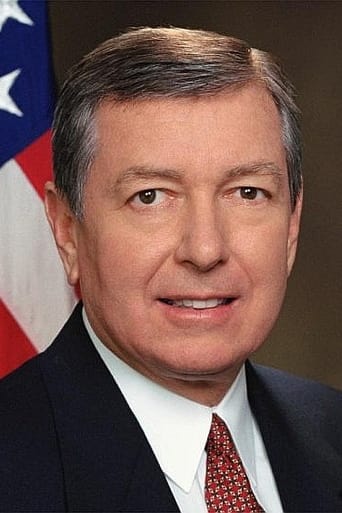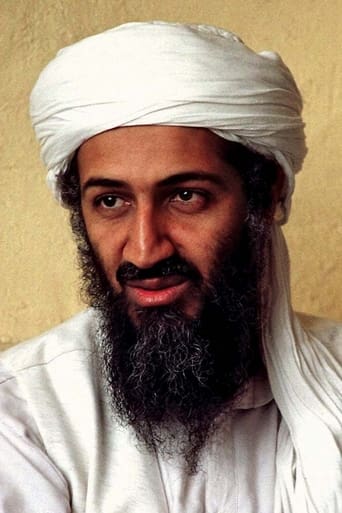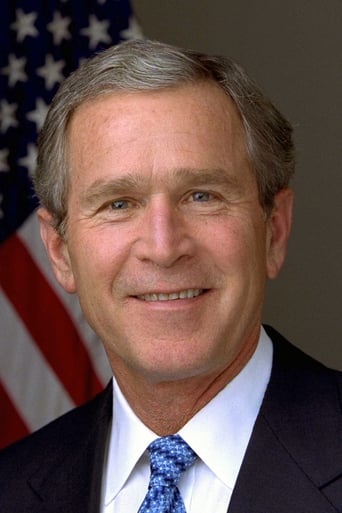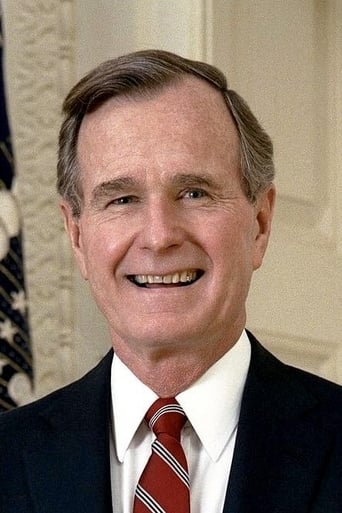Raetsonwe
Redundant and unnecessary.
GrimPrecise
I'll tell you why so serious
Dorathen
Better Late Then Never
Janis
One of the most extraordinary films you will see this year. Take that as you want.
L Stoltzfus
Why We Fight explores exactly that: as a nation, why are still fighting? Piecing together archival footage from everything from Eisenhower to news coverage of the March 19, 2003 bombing of Iraq, Jarecki frames a picture of the United States with it's own public documents, personas, and new media materials; his exploration of the profitability of war and the puppet string manipulations that he claims dictate the United States leave the viewer struck with the distinct feeling that something is rotten here.Beginning by asking the question that many Americans asked after 9/11, "Why do they hate us?" Jarecki presents a case strongly suggesting that that is exactly what the war hungry, corporate American government wants you to ask. Not only does it downright accuse the American government of being in bed with the corporate defense and weapon industry, it also speaks to a lack of general understanding of the United States history, implying that ignorance makes for easy control. Gore Vidal even states in the film, "We live here in the United States of Amnesia. No one remembers anything before Monday morning. Everything is a blank. They have no history." And by using plenty of close-up, eye level shots in various interviews with elected government officials and experts, the viewer can not deny that Jarecki establishes credibility with both the natural, framing of the shots and the shear notoriety of the individuals interviewed. Sound plays a huge role in this film; the diegetic war sounds in the archival footage and the one on one personal interviews with Iraqi citizens resonate in the viewer's mind long after the credits. Jarecki also incorporates quite a bit of intentional juxtaposition with his nondiegetic sound choices, playing poignant songs and instrumentals while crosscutting back to footage of war and death.This film left me sad and angry and once again questioning the state of this country, which, since of the release of this film in 2005, has only gotten more complicated. Adding undeniably emotional interviews with the father of a 9/11 victim and others and shots of children suffering after bombings in Iraq, Jarecki adds a personal element to the film that sticks with the viewer. Overall, the film is engaging, worthwhile, and thought-provoking, but good luck holding on to hope for the future after watching it.
tom jones
O.k. Lets face it. A directors pals can go to IMDb under different names and add a bunch of fake positive reviews to make a movie look legitimate. This one is total and complete drivel. It's slightly more subtle than Michael Moore's obvious lefty propaganda. It is the same left Propaganda however. Additionally I can assure you the NUMEROUS claims by posters to not be leftist fanatics are all lies. The leftist slant here is obvious to even a child. Much less to so-called conservative thinking people. This is yet another hatchet job on America done by an anti American fanatic. He learned well from the left. Hate America. Blame America for everything. Resent the American Military, though it freed most of the planet and continues to keep it free. Bunch of lefty "hate your country" crap. If you like lies then watch this crap. Just don't pretend it's balanced or true. These positive posts are laughable. At least now I know I can make a movie and single handedly come here and also make it look popular lol. What a bunch of morons lol
Dennis Littrell
There's a sense of dreadful irony suffusing this documentary about Bush's war in Iraq. There's the case of the guy (Wilton Sekzer) whose son was killed in the 9/11 attacks. Fired with a desire for revenge, he writes the Pentagon to get his son's name put on a bomb that he hopes is dropped on those who killed his son. He's a retired cop and a Vietnam vet. He gets to see a photo of the bomb with his son's name on it. The terrible irony is the bomb is not dropped on somebody who might have killed his son. Instead it likely falls on civilians in Iraq.This up close and personal irony mirrors the larger one: Bush had little interest in getting bin Laden and those responsible for the 9/11 murders. Instead he used those attacks as a rationale to pursue a personal agenda of shock and awe so that he might be in a position to avoid the fate of his father, who was a one-term president.An even greater irony is in the title. "Why We Fight" is the name of a series of World War II films made by Frank Capra aimed at American soldiers going overseas to fight the Nazis or the Japanese imperialists. The irony is that in WWII it was clear why we had to fight. In Bush's war there was and is no clear necessity, moral or strategic, no sense of doing the right thing, of going against an enemy that would conquer us. Instead, there is just the terrible sense of waste, waste of over one hundred thousand human lives (and counting), waste of hundreds of billions of American dollars (that could have been put to better use at home)--all seemingly for the aggrandizement of one man and the twisted dreams of a handful of neocon chicken hawks drunk with power.Another irony is that of the intelligence/information officer, Air Force Lt. Col. (ret.) Karen Kwiatkowski, who learned that much of the information that she was required to disseminate and swallow was misinformation and outright lies. And then there is the irony of the young pilots who were interviewed, who dropped the bombs. One is lead to say what an honor it was to drop one of the first bombs in Operation Iraqi Freedom, an operation he saw as liberating a people, an operation that had previously been called (with telling dramatic irony) Operation Iraqi Liberation (OIL).As the documentary reminds us, World War II was fought for oil as well, but it was the Japanese who started it to secure the oil fields in the South Pacific so that they could fuel further expansion in Asia, and by the Nazis who also had little to no domestic crude to fuel their maniac dreams of world domination.What sets this documentary apart from some others (especially the somewhat shallow exercise by Michael Moore) is how the war is put in historical perspective. Director Eugene Jarecki shows how the illogic of the present meshes with that of the past as we see Rumsfeld making nice with Saddam Hussein in the days when we supported him as our dictator in the Middle East. And further removed we see the grainy ghosts of Vietnam past: John F. Kennedy, LBJ, Nixon... And then there are the many mendacious statements of Bush, Cheney, Rumsfeld, Richard Perle, Paul Wolfowitz, et al., juxtaposed against the damning analysis of military and political experts.In the final analysis Jarecki makes it clear that we fight to feed the vast military-industrial complex that Eisenhower warned us about. As someone (Chalmers Johnson, I believe) remarks, with so much profit to be made in war, you can be sure that war will follow. How else to use up the munitions so that others might be manufactured and sold?(Note: Over 500 of my movie reviews are now available in my book "Cut to the Chaise Lounge or I Can't Believe I Swallowed the Remote!" Get it at Amazon!)
Lee De Cola
Ever since Michael Moore brought us the dramatic documentary of Flint Michigan versus General Motors, nonfiction film seems to have gone downhill. This important movie contains one fundamental message: the United States has evolved into a military/industrial/political empire based on the development, production, and marketing of war technologies. In effect the US has built upon the Soviet model by using the power of capitalism to take the command economy to a higher level. But the message of the film is confused with overly dramatic editing and music (the advertising model), cute but distracting subplots (a kid joining the army, an angry dad's growing cynicism), ahistorical sequences and cutting that left me amused but confused. There's no substitute for developing a story and clearly telling it, and when the story is as important as this one, there's no excuse for substituting drama for straightforward narrative. Finally, as an expert in information architecture, I was especially disappointed to see not one graph or table demonstrating the relative and absolute growth of the new imperial military economy. Someone needs to tell this disturbing story clearly, with the facts laid out, letting the drama of an unfolding global disaster express itself.





